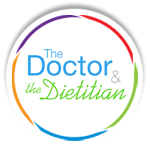As a Lion a big part of your diet is fat, not just protein. During our consultations we go over a list of food that can be categorized as fat on The Hauser Diet and we discuss how much you should be taking in each day.
As time goes on, we think some people forget what they should be focusing on when choosing their foods, and what the purpose of food is. Yes, things like mayonnaise, margarine, and shortening would all fall into the “fat” category, but are those the best fats for Lion’s to be eating? Not all fats are equal. Think carefully and make smart choices to help get the most out of the foods you eat.
The most basic rule would be to limit or eliminate your intake of trans/hydrogenated fats. Choose fats that will provide you with other nutritional benefits. Below we’ve listed some of our favorite fats for a Lion:
Extra Virgin Olive Oil
One of most healthy fats you’ll find! It is the antioxidant compounds and fatty acids that that largely contribute to olive oil beneficial properties. Although there may be better options for heating (since the properties of olive oil can change at high temperatures), use this oil for drizzling over meat or veggies before serving, or mix with balsamic for a great salad dressing.
Raw Cashews
This tends to be a lot of people’s favorite nut! Cashews are a tasty healthy snack for Lion’s. They provide a good source of iron, magnesium, and zinc. In addition to a snack you can add them to a chicken stir fry with some vegetables and hot chili flakes, for an extra kick.
Avocado
This fat gives a good amount of the monounsaturated fatty acid, oleic acid. It is a great antioxidant rich food and full of vitamin A and potassium. As healthy as it is, just be careful not to over do them. They are very calorically dense having over 250 calories per avocado!
Now What About That Avocado?
I absolutely love avocados!
The monounsaturated fat in avocadoes provides you with “good fats” that are very difficult to get in the typical American diet. Monounsaturated fats can help protect your heart by lowering LDL (or bad cholesterol) while raising HDL (or good cholesterol). They also contain fiber and the phyonutrient beta-sitosterol, which also can help maintain health cholesterol levels and has been shown to promote eye health.
What about a good source of Vitamin E? Avocadoes have the highest fruit gram-per-gram content of this powerful antioxidant. One recent Japanese study showed that avocadoes also helped support the liver.
So don’t shy away from avocadoes. They do the body good!



